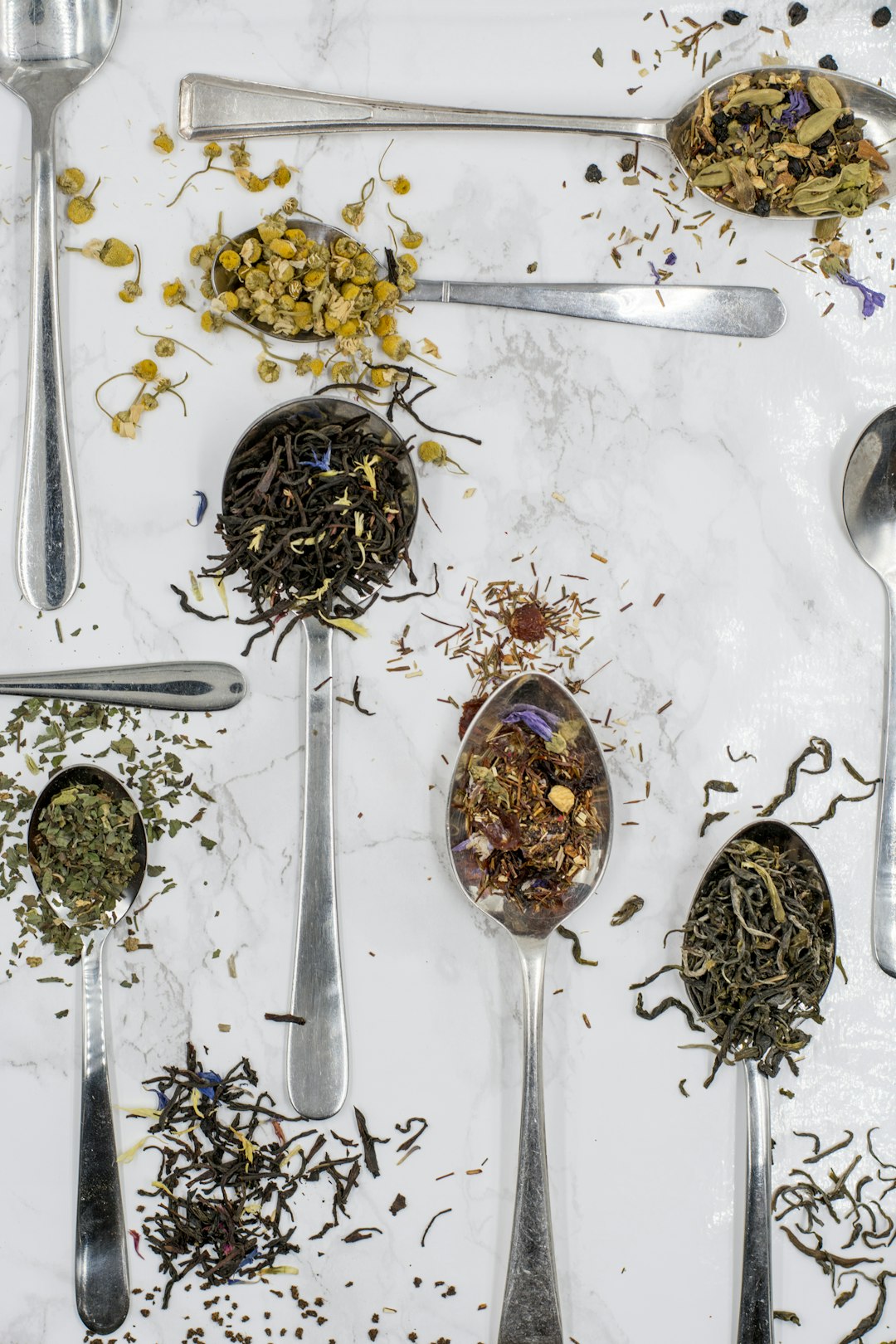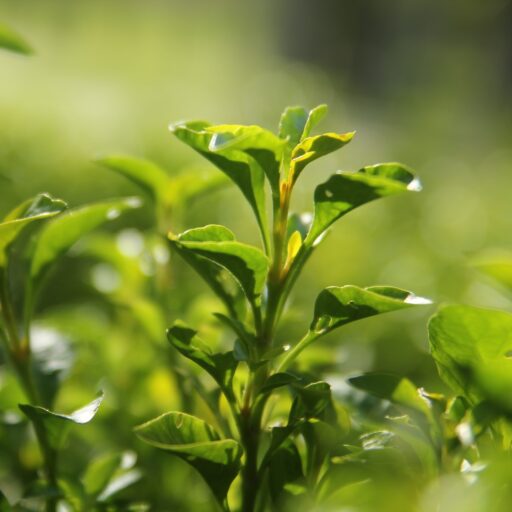Support our educational content for free when you purchase through links on our site. Learn more
Can You Grow Tea in Georgia, USA? Discover 10 Surprising Facts for 2024! 🌱

Have you ever sipped a cup of tea and wondered where that delightful flavor originated? You might be surprised to learn that tea can be grown right here in the USA, specifically in Georgia! With its lush landscapes and favorable climate, Georgia is emerging as a hidden gem for tea cultivation. Imagine strolling through picturesque tea gardens, hand-picking leaves for your own brew. 🍃
In this article, we’ll unveil the 10 surprising facts about growing tea in Georgia, including the best varieties to cultivate, essential tips for success, and why this state is poised to make a name for itself in the tea world. Did you know that Georgia’s tea-growing history dates back to the 1800s? Or that the state’s unique conditions can yield high-quality black, green, and oolong teas? Get ready to dive into the fascinating world of Georgian tea cultivation!
Key Takeaways
- Georgia’s Ideal Climate: The state’s humid subtropical climate creates perfect conditions for tea growth.
- Diverse Varieties: You can successfully grow black, green, and oolong teas in Georgia.
- Rich History: Georgia has a storied past in tea cultivation, dating back to the 19th century.
- Small-Scale Farms: A resurgence of artisanal tea farms is revitalizing the industry.
- Pest Management: Regular monitoring is essential for preventing common tea pests and diseases.
Ready to embark on your tea-growing adventure? 👉 CHECK PRICE on: Georgian Tea on Amazon | Georgian Tea on Walmart | Growing Teas Official Website
Dive into the article to learn more about how to cultivate your own tea in Georgia and join the growing community of tea enthusiasts! 🌿
Table of Contents
- Quick Tips and Facts About Growing Tea in Georgia 🌱
- The Tea Journey: A Brief History of Tea Cultivation in Georgia 🍃
- Why Georgia is an Ideal Location for Tea Growth 🌞
- The Best Tea Varieties to Grow in Georgia 🌿
- So, Why Haven’t You Heard of Georgian Tea Before? 🤔
- Where is Georgian Tea Today? 📈
- How to Start Your Own Tea Garden in Georgia 🏡
- Tips for Successful Tea Cultivation in Georgia 🌻
- Try Georgian Tea from Our Farm! ☕
- Useful Resources for Aspiring Tea Growers 📚
- Contact Us for More Tea Growing Insights 📞
- Follow Our Farmer Life: Join the Tea Community! 🌍
- Conclusion: Sip the Future of Georgian Tea 🍵
- Recommended Links for Tea Enthusiasts 🔗
- FAQ: Your Tea Growing Questions Answered ❓
- Reference Links for Further Reading 📖
Quick Tips and Facts About Growing Tea in Georgia 🌱
Growing tea in Georgia can be a rewarding experience, but it requires careful consideration of the state’s climate and soil conditions. Here are some quick tips and facts to get you started:
- Georgia’s climate: Georgia has a humid subtropical climate, with hot summers and mild winters. This climate is suitable for growing tea, but it requires careful management to prevent pests and diseases.
- Soil conditions: Georgia’s soil is generally acidic, which is ideal for tea cultivation. However, the soil may require additional nutrients and fertilizers to support healthy tea growth.
- Tea varieties: Georgia is suitable for growing a variety of tea types, including black, green, and oolong tea.
- Growing season: The growing season in Georgia typically lasts from March to October, with the peak growing season occurring in May and June.
- Pest and disease management: Georgia’s climate can be prone to pests and diseases, such as aphids, whiteflies, and root rot. Regular monitoring and management are essential to prevent these issues.
For more information on growing tea in Georgia, check out our article on Soil and Climate for Tea.
The Tea Journey: A Brief History of Tea Cultivation in Georgia 🍃

Georgia has a rich history of tea cultivation, dating back to the 19th century. Here’s a brief overview:
- Early beginnings: Tea was first introduced to Georgia in the 1800s, when Russian tea growers brought their expertise to the region.
- Soviet era: During the Soviet era, Georgia became a major tea producer, with tea farms spread throughout the country.
- Decline and rebirth: After the Soviet Union collapsed, the tea industry in Georgia declined significantly. However, in recent years, there has been a resurgence of interest in tea cultivation, with many small-scale tea farms emerging.
For more information on the history of tea cultivation in Georgia, check out our article on Tea Market Trends.
Why Georgia is an Ideal Location for Tea Growth 🌞
Georgia’s unique climate and soil conditions make it an ideal location for tea growth. Here are some reasons why:
- Subtropical climate: Georgia’s subtropical climate provides the perfect conditions for tea growth, with mild winters and hot summers.
- Acidic soil: Georgia’s acidic soil is ideal for tea cultivation, as it provides the necessary nutrients for healthy tea growth.
- Adequate rainfall: Georgia receives adequate rainfall throughout the year, which is essential for tea growth.
For more information on the benefits of growing tea in Georgia, check out our article on Green Tea Cultivation.
The Best Tea Varieties to Grow in Georgia 🌿
Georgia is suitable for growing a variety of tea types, including:
- Black tea: Black tea is one of the most popular tea types in Georgia, and it thrives in the state’s subtropical climate.
- Green tea: Green tea is another popular tea type in Georgia, and it requires careful management to prevent oxidation.
- Oolong tea: Oolong tea is a partially fermented tea type that is gaining popularity in Georgia.
For more information on the best tea varieties to grow in Georgia, check out our article on Herbal Tea Planting.
So, Why Haven’t You Heard of Georgian Tea Before? 🤔
Despite its rich history and ideal climate, Georgian tea has remained relatively unknown outside of the region. Here are some reasons why:
- Limited production: Georgia’s tea production is limited compared to other major tea-producing countries.
- Lack of marketing: Georgian tea has not been heavily marketed outside of the region, which has contributed to its relative unknown status.
For more information on the challenges facing Georgian tea, check out our article on Tea Market Trends.
Where is Georgian Tea Today? 📈
Despite the challenges facing Georgian tea, there is a growing interest in the industry. Here are some updates on the current state of Georgian tea:
- Small-scale tea farms: Many small-scale tea farms have emerged in recent years, producing high-quality tea using traditional methods.
- Artisanal tea: Georgian tea is gaining recognition for its unique flavor profile and artisanal production methods.
For more information on the current state of Georgian tea, check out our article on Health Benefits of Tea.
How to Start Your Own Tea Garden in Georgia 🏡
Starting your own tea garden in Georgia requires careful planning and management. Here are some steps to get you started:
- Choose the right location: Look for a location with suitable climate and soil conditions.
- Select the right tea variety: Choose a tea variety that is suitable for Georgia’s climate and soil conditions.
- Obtain the necessary equipment: Invest in the necessary equipment, such as tea plants, fertilizers, and pest management tools.
For more information on starting your own tea garden in Georgia, check out our article on Cultivate Your Own Tea.
Tips for Successful Tea Cultivation in Georgia 🌻
Here are some tips for successful tea cultivation in Georgia:
- Monitor soil conditions: Regularly monitor soil conditions to ensure optimal tea growth.
- Manage pests and diseases: Regularly monitor for pests and diseases, and take action promptly to prevent damage.
- Provide adequate water: Ensure that your tea plants receive adequate water throughout the growing season.
For more information on successful tea cultivation in Georgia, check out our article on Soil and Climate for Tea.
Try Georgian Tea from Our Farm! ☕
At Growing Teas, we are proud to offer high-quality Georgian tea from our own farm. Our tea is carefully cultivated and harvested to ensure the best flavor and aroma. Try our Georgian tea today and experience the unique flavor profile of this emerging tea region.
👉 CHECK PRICE on: Amazon | Walmart | Growing Teas Official Website
Useful Resources for Aspiring Tea Growers 📚
Here are some useful resources for aspiring tea growers:
- Tea cultivation guides: Check out our article on Cultivate Your Own Tea for a comprehensive guide to tea cultivation.
- Tea market trends: Stay up-to-date on the latest tea market trends with our article on Tea Market Trends.
- Tea communities: Join our tea community to connect with other tea enthusiasts and learn from their experiences.
Contact Us for More Tea Growing Insights 📞
At Growing Teas, we are passionate about tea cultivation and are always happy to share our knowledge with others. Contact us today to learn more about tea growing in Georgia and how to get started with your own tea garden.
Follow Our Farmer Life: Join the Tea Community! 🌍
Join our tea community to stay up-to-date on the latest tea growing insights and connect with other tea enthusiasts. Follow us on social media to get the latest updates from our farm and learn more about the art of tea cultivation.
CHECK OUT OUR SOCIAL MEDIA CHANNELS:
Conclusion: Sip the Future of Georgian Tea 🍵

Growing tea in Georgia is not just a possibility; it’s a budding opportunity waiting to be explored! With its unique climate, rich soil, and a growing community of dedicated tea growers, Georgia is poised to become a significant player in the tea world.
Positives:
- Ideal Growing Conditions: The subtropical climate and acidic soil create a perfect environment for tea cultivation.
- Diverse Tea Varieties: You can grow a variety of teas, from black to green, catering to different tastes.
- Revival of Tradition: There’s a resurgence of artisanal tea production, making Georgian tea an exciting niche to explore.
Negatives:
- Limited Awareness: Georgian tea is still relatively unknown, which can make it challenging to market.
- Pest Management: The humid climate can lead to pest and disease issues that need careful management.
- Small Scale Production: The tea industry is still in its infancy, which may limit availability.
In summary, if you’re considering growing tea in Georgia, we wholeheartedly recommend diving in! The potential for high-quality, organic tea production is immense, and you’ll be part of a community that values craftsmanship and sustainability. So grab your gardening gloves and get started on this flavorful journey! 🌱
Recommended Links for Tea Enthusiasts 🔗
- Georgian Tea from Our Farm: CHECK PRICE on Amazon | CHECK PRICE on Walmart | Growing Teas Official Website
- Books on Tea Cultivation:
FAQ: Your Tea Growing Questions Answered ❓

Where in the US can you grow tea?
Growing tea is possible in several regions across the US, particularly in states with humid subtropical climates. Notable areas include:
- South Carolina: Home to the Charleston Tea Plantation, the largest tea farm in the US.
- Georgia: Emerging as a new contender with several small tea farms.
- California: Some farms are experimenting with tea cultivation, particularly in coastal areas.
Read more about “Discover 10 Easy-to-Grow Tea Plants for Your Garden in 2024! 🌱”
Where do people in Georgia grow tea?
In Georgia, tea is primarily grown in:
- Ellabell: Home to Blackcreek Tea Garden, a small-scale tea farm offering tours and education.
- Newnan: Dunaway Gardens Tea has been cultivating tea since 2011, focusing on local sales and expansion.
These farms are leading the revival of tea cultivation in the state.
Read more about “How Long Does It Really Take to Grow Tea? Discover 10 Essential Insights … ☕️”
Can you grow tea in the South?
Absolutely! The Southern US, particularly states like Georgia, South Carolina, and Alabama, offers the ideal climate and soil conditions for tea cultivation. The warm temperatures and adequate rainfall create a favorable environment for various tea plants.
Read more about “Will Tea Grow in the U.S.? Discover 7 Surprising Regions for Tea Cultivation … 🍃”
What is the only state in the US that grows tea?
While there are multiple states growing tea, South Carolina holds the title for the most extensive tea production, particularly with the Charleston Tea Plantation. However, Georgia is quickly gaining recognition as a burgeoning tea-growing state.
Read more about “What is the only state in the US that grows tea?”
What are the best practices for growing tea in Georgia?
- Soil Preparation: Ensure your soil is acidic and rich in organic matter.
- Pest Management: Regularly monitor for pests and diseases, employing organic methods where possible.
- Watering: Maintain consistent moisture, especially during the growing season.
What tea varieties are best suited for Georgia’s climate?
- Black tea: Thrives well in Georgia’s climate and is a popular choice.
- Green tea: Requires careful handling to avoid oxidation but can flourish in the right conditions.
- Oolong tea: A great option for those looking to experiment with partially fermented teas.
Reference Links for Further Reading 📖
- Renegade Tea: Georgian Tea Revival
- Kill Green: Where Tea is Grown in the United States and Canada
- Growing Teas: Health Benefits of Tea
- Growing Teas: Soil and Climate for Tea
With these insights, you’re well on your way to becoming a tea-growing aficionado in Georgia! Happy gardening! 🌿



